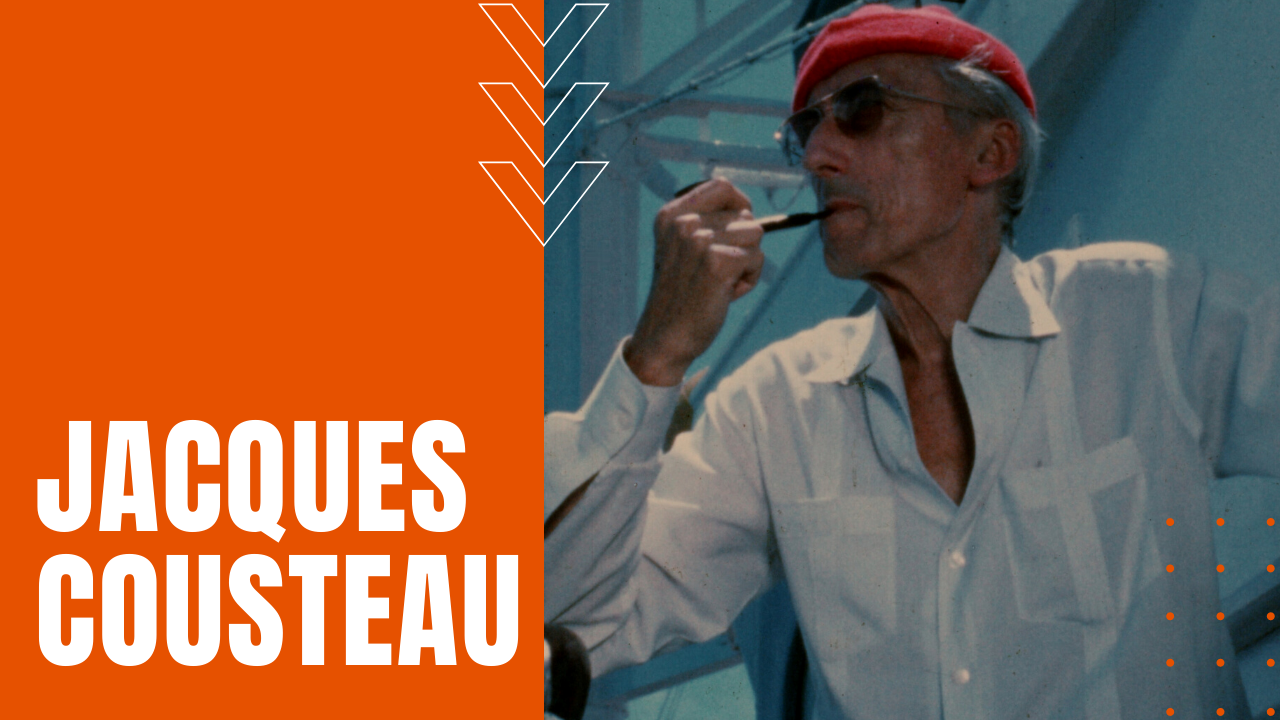Jacques Cousteau: Explorer, Oceanaut, Inventor, and Environmental Activist

Who is Jacques Cousteau?
Born in the south of France in 1910, young Jacques Cousteau developed a fascination with the ocean, joining the French Naval Academy at age 20, where he aspired to be a naval aviator. Sidelined by a horrific car crash that broke both his arms, he turned back to his interest in the sea, co-inventing the aqua lung with french engineer Emile Gagnan.
In the 1960s, he also went on to design a series of diving bells, which eventually reached depths of 1640 feet. Known as Conshelf I, II and III, Cousteau pioneered underwater habitats for “oceanauts,” as he called them, allowing researchers to live and work for weeks without returning to the surface, which in turn paved the way for human survival techniques in other harsh environments like outer space.
Oceanic Exploration
Over the course of his lifetime, Cousteau created numerous organizations dedicated to oceanic exploration and environmental conservation, as well as producing an astounding output of books and films about the ocean, including his first published work, The Silent World, followed by a documentary film by the same name, which later won the Palme d’Or at the Cannes Film Festival.
Cousteau’s Calypso and Discoveries
His now-famous floating lab, The Calypso, allowed Cousteau and his team to undertake underwater archaeologic expeditions, discovering a dizzying array of shipwrecks and war relics, including the HMHS Britannic and the 17th-century French wreck La Therese. His observations into the life aquatic also led to many scientific findings, such as his proposal that dolphins navigate ocean waters using sonar echolocation, which was later confirmed by marine biologists.
In 1966, Cousteau produced the wildly popular The Undersea World of Jacques Cousteau, which made his red bonnet, French accent and personalized adventure style a beloved television hit over the show’s ten-year run. A second documentary series called The Cousteau Odyssey kept the intrepid adventurer in the spotlight from 1977 to 1982. During his many decades of exploration, Cousteau began to acknowledge the detrimental effects of human activity on the ocean, reporting on pollution and its winnowing effects on marine diversity in ocean waters thousands of miles from land.
He also helped restrict commercial whaling activity by using his platform to apply pressure on heads of states, which led the International Whaling Commission to ban commercial whaling in 1986.
When Did Jacques Cousteau Die?
By his death at age 87 in 1997, Cousteau’s legacy includes more than 120 documentary films, more than 50 books and an environmental protection foundation with over 300,000 members, leading him once to proclaim that “the sea, the great unifier, is man’s only hope. Now, as never before, the old phrase has a literal meaning: we are all in the same boat.”
